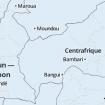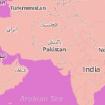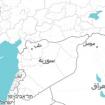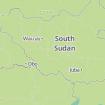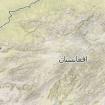News, blog posts, and event announcements. Other websites are welcome to cross-post this material with attribution and a link to the original.
What's New
04/26/2013
On April 24 Foreign Affairs published an article by Leonard S. Rubenstein, “Unhealthy Practice: Medical Work in Conflict Zones Is Compromised.” For the second time in less than six months, Rubenstein writes, polio vaccine workers in Pakistan have come under fire. For the gunmen, killing health workers has been seen as a legitimate response to a nefarious extension of Western power. For the CIA, faux vaccine campaigns have sometimes been justified as part of the war on terror. Both sides are wrong, he says: denying or providing health care should never be an instrument of statecraft.
04/25/2013
The UN Office for the Coordination of Humanitarian Affairs published an update on the security situation in the Central African Republic and its effects on health and other sectors. Since the March 24 coup the security situation continues to deteriorate, particularly in Bangui, and is impeding humanitarian operations. Since April13, altercations between Seleka members and the civilian population have resulted in deaths and severe injuries.
04/24/2013
Few telephone calls can be as portentous as the one Mumtaz Begum, 35, received on 15 March 2011. At the time, it sounded like just another call from a supervisor to a health worker inviting her to a meeting the next morning about a forthcoming vaccination campaign. As it turned out, Ms Begum and 16 other lady health workers (LHWs), as they are known locally, were to become pawns in the hunt for the world's most wanted man, Osama Bin Laden. They have since been living under constant fear of attacks, have been called traitors by some and have lost their jobs.
04/22/2013
Health workers in northern Syria have reported a dramatic rise in cases of Leishmaniasis--locally dubbed “Aleppo Button Disease” for the sores it produces--and are calling on the World Health Organization and other international agencies for help. Leishmaniasis, transmitted through the bite of the common sandfly, is a complex of diseases affecting different parts of the body. The kind most commonly found in Syria is called cutaneous Leishmaniasis, which is characterized by welts or sores on the skin.
04/19/2013
Five health workers have been killed when South Sudan soldiers attacked a hospital in revenge for the deaths of eight members of the security forces, the local MP has told the BBC. David Mayo said the fighting was still going on and urged the army to be withdrawn. Local community leaders confirm that the hospital in the village of Lorema, Eastern Equatoria state, was attacked.
04/18/2013
We at IntraHealth are keeping those who were injured and affected by the bombings at Monday’s Boston Marathon in our thoughts this week. The act of cruelty took three lives and inflicted gruesome, life-changing injuries on many others. Some athletes who were in top condition just a few days ago will never run again. But many are alive today because of the doctors, surgeons, and nurses who were ready and able to treat their injuries as soon as they rolled in the door.
04/17/2013
Roadside bombs and insurgent attacks killed at least 24 people in five separate attacks across Afghanistan as violence steadily rises during this year's spring fighting season, officials said Wednesday. So far, April has been the deadliest month this year for Afghan and foreign civilians and security forces. According to an Associated Press tally, 182 people have been killed in violence around the nation this month. […] In northern Jowzjan province, police chief Aziz Ghayrat said insurgents opened fire on elders in a village and two health workers were killed in the crossfire.
04/10/2013
On April 11 from 9:30 a.m. to 11:00 a.m., Harvard University’s Program on Humanitarian Policy and Conflict Research is hosting a live webinar. Health Under Fire: The Targeting of Medical Workers in Conflict Zones will address a number of legal, political, and professional dilemmas that this situation presents and will consider the following questions:
04/02/2013
The New York Times published a letter from Leonard Rubenstein in response to the March 24 article, “In Syria’s Civil War, Doctors Find Themselves in Cross Hairs.” “Syria’s arrest, imprisonment, torture and murder of doctors and nurses for providing medical care to its enemies warrants not only condemnation but also referral to the United Nations Security Council for prosecution for war crimes,” Rubenstein wrote.
04/01/2013
At the twenty-second session of the Human Rights Council in March, the council passed a resolution on children and the right to health (Rights of the child: the right of the child to the enjoyment of the highest attainable standard of health). In a section on “Health issues relating to children requiring special attention,” the council included language on children affected by armed conflicts. Paragraphs 25 and 27 are of particular interest to the work of the Safeguarding Health in Conflict coalition:



